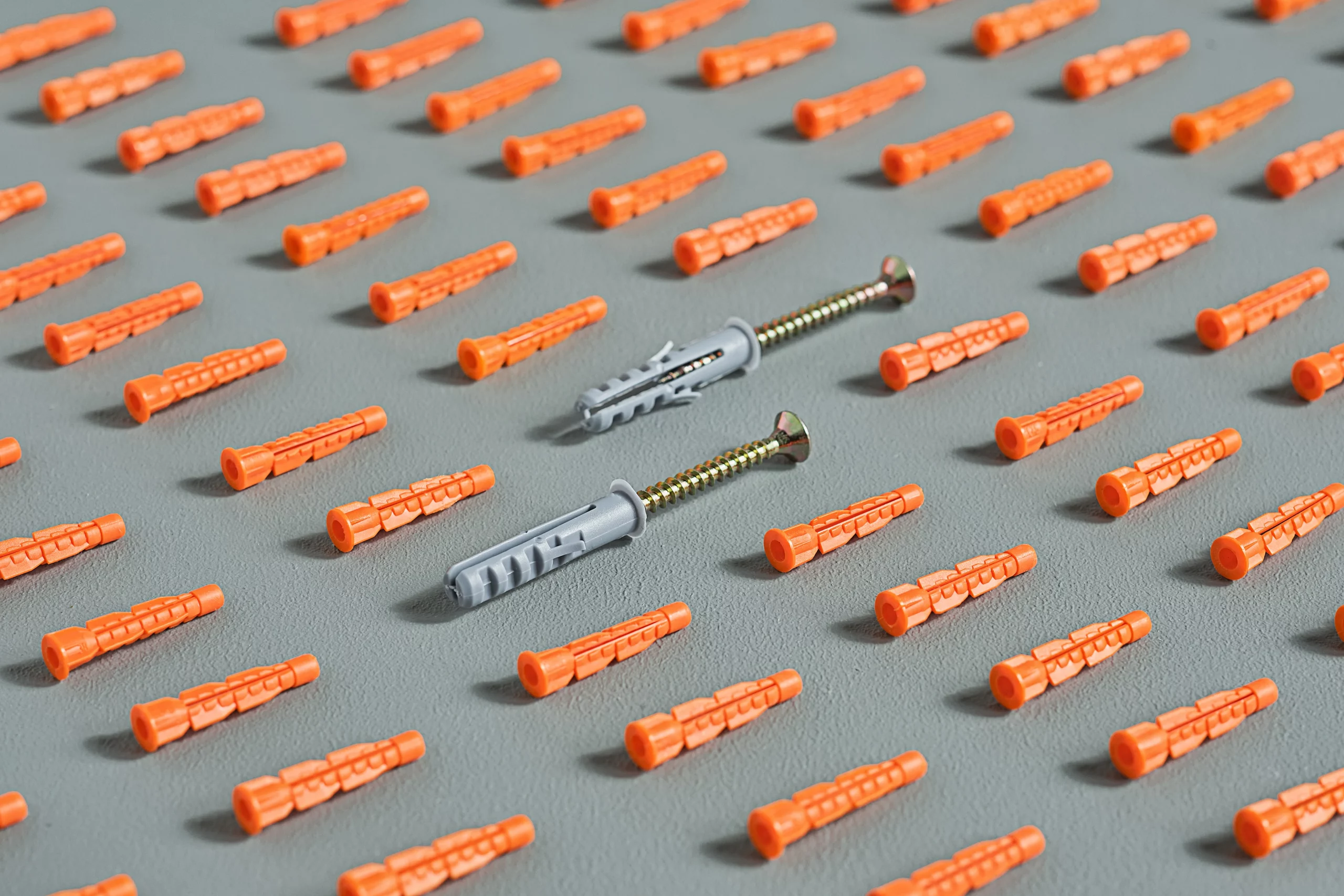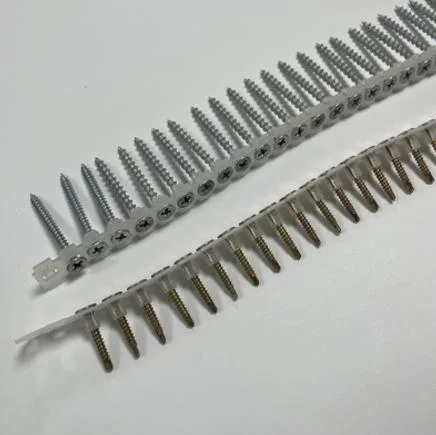caTEGORIES
Tags
Are Drywall Screws Suitable for Metal Studs? Find Out Here

Posted: December 10, 2024
Categories: News
Drywall screws are essential fasteners used to attach drywall to studs, ensuring a secure and smooth installation. With their bugle-shaped heads and threaded bodies, these screws prevent damage to the drywall surface while providing a strong stable hold. In this blog, we will explore the different types of drywall screws, their compatibility with metal studs, installation tips, and alternative fastening options for your construction projects.
What Are Drywall Screws?
When starting a construction or renovation project it’s important to know the tools and materials required for the job at hand. Drywall screws play a role in attaching drywall sheets to kinds of studs. They are engineered for this specific task making them a preferred option in both residential and commercial building projects.
Definition and Purpose
Drywall screws are fasteners utilized for securing drywall to either metal studs. They are usually crafted from steel, featuring a bugle shaped head that enables them to be level with the drywall surface. This construction aids in safeguarding the drywall paper and guarantees an appearance—this is important for stages such as painting or applying wallpaper.
Types of Drywall Screws
Different kinds of screws are used for purposes when it comes to drywall installation.
- Coarse Thread Screws: These are ideal for wood studs as they have larger threads that grip into the wood securely.
- Fine Thread Screws: Best suited for metal studs, these screws have smaller threads that penetrate metal without causing splitting.
- Self-Drilling Screws: These eliminate the need for pre-drilling holes, making installation quicker and more efficient.
Knowing about these differences can assist you in choosing the screw type that aligns with the needs of your project.
Can Drywall Screws Be Used with Metal Studs?
Select the right fastener plays a role in guarantee the stability and durability of your building project. It’s common to use drywall screws with wood studs. Their suitability for metal studs is a question often asked by builders.
Compatibility of Drywall Screws with Metal Studs
You can definitely use drywall screws with metal studs long as you select the kind to do the job properly! Fine thread screws are ideal for this task because they can smoothly go through metal without causing any harm to it in the process. Also worth considering are self drilling drywall screws which provide a solution by removing the requirement for drilling holes beforehand.
Benefits and Drawbacks
When it comes to using drywall screws with metal studs there are both benefits and drawbacks to consider;
- Benefits:
- Ease of Use: Fine thread or self-drilling screws simplify installation by reducing preparation time.
- Secure Attachment: They provide a strong hold between the drywall and metal stud, ensuring stability.
- Cost-Effective: Generally more affordable than other fastening methods like rivets or welding.
- Drawbacks:
- Limited Thickness Penetration: Standard drywall screws may struggle with thicker gauge metals.
- Potential Corrosion: In humid environments, non-coated screws may rust over time unless treated or coated appropriately.

How to Properly Install Drywall Screws in Metal Studs?
Ensuring your drywall stays in place for the long haul involves using the installation methods to prevent issues, like screws popping out or panels becoming loose.
Tools and Materials Needed
Before you begin the installation processs Make sure to gather all these tools and materials needed for the task.
- Power drill or screwdriver
- Fine thread or self-drilling drywall screws
- Measuring tape
- Pencil or marker
- Level
- Safety goggles
Make sure to have these items to make the installation process smoother and safer.
Step-by-Step Installation Process
- Utilize a tape measure to identify the locations for each screw along the stud lines and mark these spots with a pencil or marker to maintain uniform spacing.
- Make sure the drywall panels are positioned correctly against the studs ensuring alignment along all edges. Use a level to check for straightness if needed.
- Lets get started with drilling! Begin at a corner. Gently insert a thread or a self drilling screw into the marked points using either a power drill or screwdriver tool Make sure that each screw head is positioned slightly below the surface level without piercing through the paper layer.
- Continue working your way across each panel making sure to secure all the marked points with screws.
- Ensure that all panels are properly aligned by inspecting them to make sure they lie flat against the studs without any gaps or protrusions.
By following these instructions when setting up the system you will get a look that lasts long and keeps your place looking nice as well.
Alternatives to Drywall Screws for Metal Studs
When it comes to fixing drywall to metal studs drywall screws are frequently used; however considering other fastener options might offer advantages tailored to your projects requirements.
Other Fastening Options
When fasten drywall to metal studs, you have an options to explore.
- Toggle bolts offer support. They areespecially effective for securing heavy loads by expanding behind the metal stud to provide strong anchoring.
- When it comes to metal projects rivets are a choice for a secure attachment that lasts. To install them properly you’ll need a rivet gun. The end result is strong and reliable.
- Metal Anchors are great for hanging drywall as they help distribute the weight evenly across the surface and lessen strain at specific points.
- In load bearing scenarios where strength is not a primary concern; construction adhesives can be combined with screws or anchors to improve steadiness and minimize the quantity of fasteners required.
Comparing Alternatives with Drywall Screws
When making a choice between drywall screws and alternative fastening optionsa few key factors to take into account are;
- Installation Convenience; Drywall screws and self drilling options provide setup without the need for tools. On the hand rivets and toggle bolts might call for gear and know how.
- Toggle bolts and metal anchors are usually able to handle loads compared to drywall screws and are often preferred for heavy duty tasks due to their higher weight bearing capacity and durability.
- When thinking about costs for projects involving hanging items like drywall screws versus rivets or toggle bolts, efficiencydoes come into play. Drywall screws present as a more budget friendly choice to go with compared to those alternatives available out there in the market space today; but keep in mind that it might be worth the higher cost if what you need is greater strength and load bearing capacity down the road.
- In demanding settings, rivets and metal anchors typically offer long term resilience than drywall screws do.
When you consider these factors in relation to your project needs and specifications you can select the method for fastening things together.
Qewit: Your Trusted Supplier for Quality Drywall Screws
Choosing a supplier is essential when acquiring materials for building projects and Qewit is known for offering top notch drywall screws designed to suit requirements.
Overview of Qewit’s Product Offerings
At Qewit you’ll find a variety of drywall screws tailored for use with wood and metal studs.
- Quality screws with threads are designed to work with metal studs while ensuring they penetrate efficiently without causing any damage to the material.
- In settings where corrosion’s a concern,Qewit offers coated screws to improve durability and effectiveness.
- Self tapping versions make it quicker to install as they remove the need for pre drilling while still ensuring a grip.
Truly dedicated to excellence in their products quality standards. Always going above and beyond industry norms to give customers peace of mind with every buy.
FAQs about Using Drywall Screws with Metal Studs
Answering asked questions can provide clarity on any doubts you may have about using drywall screws with metal studs.
What is the Maximum Weight Capacity for Drywall Attached to Metal Studs?
The highest weight limit that can be held is influenced by factors, like the kind of screw used and the thickness and spacing of the stud gauge in place. Typically speaking thread or self drilling screws are good for holding up weights successfully. For heavier items to be installed consider using toggle bolts or metal anchors with the usual screws.
Are There Specific Brands of Drywall Screws Recommended for Metal Studs?
Many companies provide choices to consider when it comes to selecting products for their dependability and excellence in quality standards should be prioritized in decisions. Brands like Qewit stand out for their expertise in offering thread and self drilling screws tailored for metal stud applications specifically.
How Do I Avoid Stripping the Screw When Installing into Metal Studs?
To prevent stripping:
- Use a power drill with adjustable torque settings to control pressure.
- Ensure proper alignment before driving the screw into the stud.
- Opt for self-drilling screws which reduce resistance during installation.
By adhering to these methods you can uphold the strength of the screws. Guarantee a connection.


